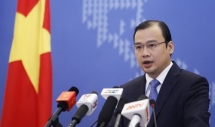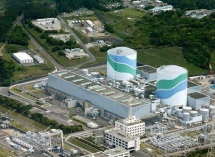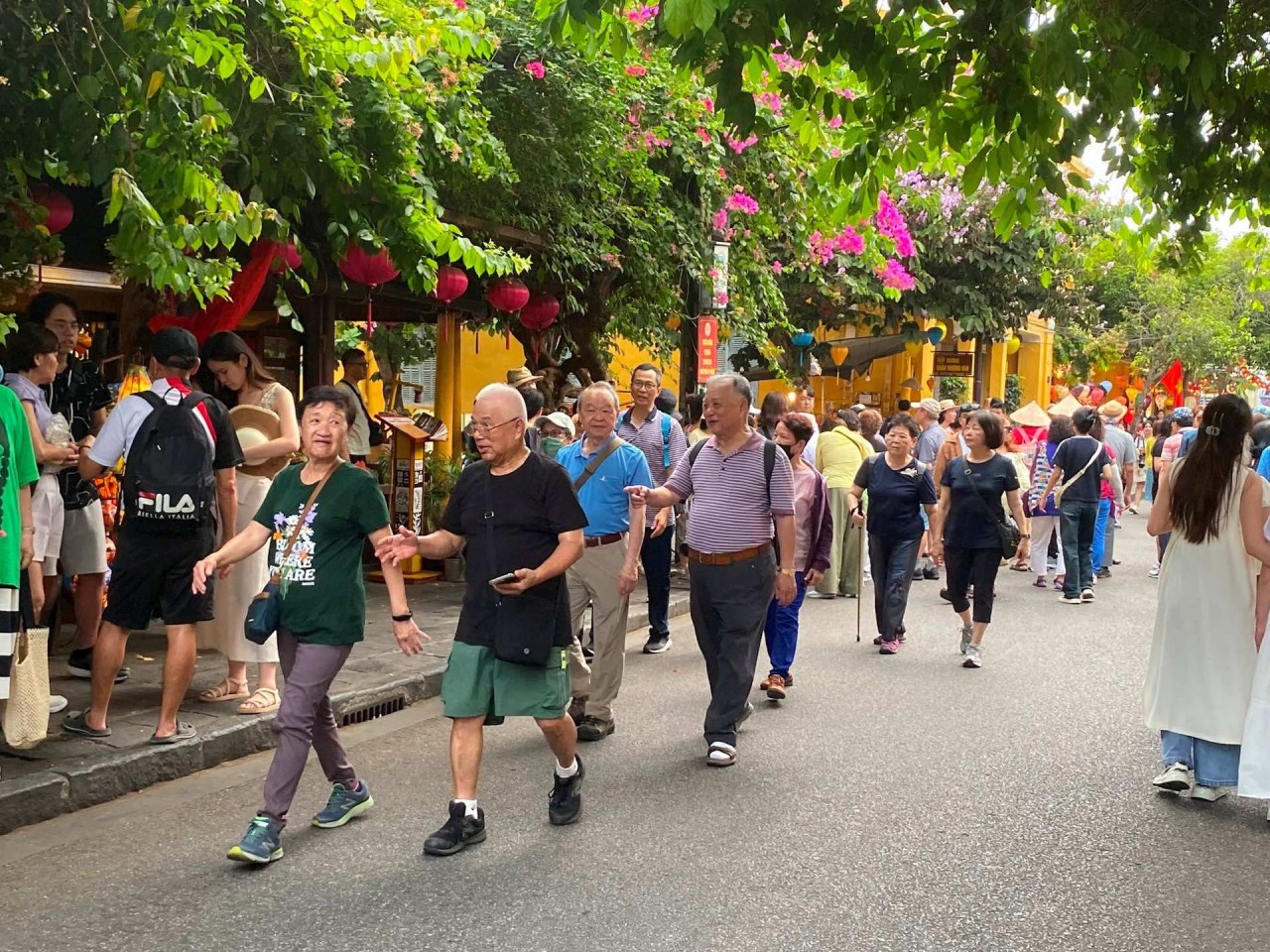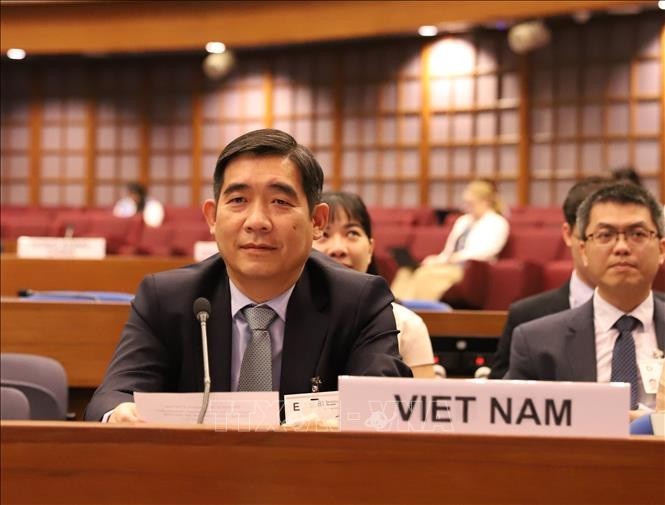Nuclear energy would help Vietnam’s development on track: experts
| Vietnam urges China to share information on its nuclear power plants | |
| Japan supports Vietnam build safe nuclear power plants | |
| GE continues to build Vietnam’s nuclear power infrastructure |
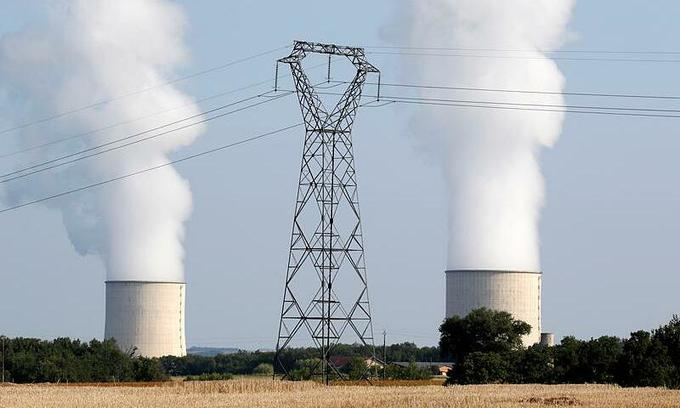 |
| Cooling towers and high-tension electrical power lines are seen near the Golfech nuclear plant on the border of the Garonne River between Agen and Toulouse, France, August 29, 2019. Photo: Reuters/Regis Duvignau. |
Prof Sheldon Landsberger of the University of Texas at Austin, the U.S., an expert in nuclear and radiation engineering, was quoted by VnExpress as saying that: "With a population of nearly 100 million people, Vietnam will need a lot of energy. The country has to figure out what is the best way of getting electricity."
It is crucial for Vietnam to sustain the growing standard of living of its people and have competitive industries, he said.
While renewable energy sources such as solar and wind could be unreliable depending on the climate, nuclear plants could work 24 hours on all 365 days a year, and could enable electricity storage as well, he pointed out.
However, unlike coal, nuclear energy is free from carbon emissions and does not pollute, he said.
Talking about the status of nuclear energy around the world, he said it is "very mixed" with parts of Western Europe planning to continue with it but others phasing it out.
The world could run out of coal and gas, maybe later this century or the next, Landsberger said.
"For that reason, Vietnam, like other countries, has to look not five or 10 years down the road but 30 or 40 years."
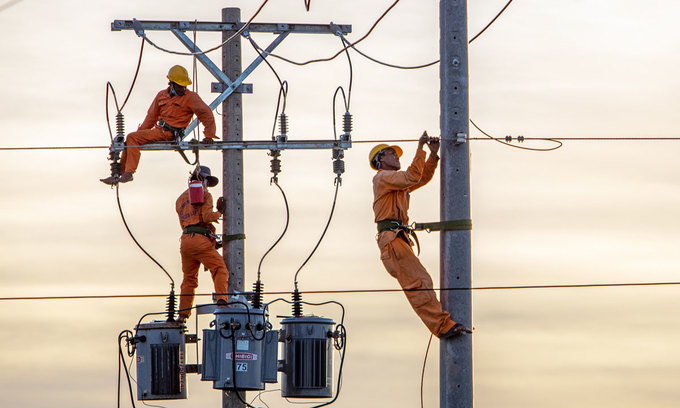 |
| Workers fix electric cables in Bac Lieu Province, southern Vietnam, May 9, 2020. Photo: VnExpress |
Dr Steven Biegalski, nuclear and radiological engineering and medical physics program chair, Georgia Institute of Technology, the U.S., said in his country nuclear power is still coming out on top today. Americans are seeing a significant reduction in using coal and natural gas, two main competitors of nuclear energy.
Dr Sama Bilbao y Leon, director general, World Nuclear Association, said nuclear energy could help ensure not only the grid stability of a country but also produce heat used in industrial processes and transportation. With this, countries could decarbonize various sectors, she said.
Vietnam could also use nuclear energy to produce freshwater, something that Middle Eastern countries are looking into, she said.
Prof Ken-ichi Fukumoto of the Research Institute of Nuclear Engineering, University of Fukui, Japan, said nuclear power is a realistic solution for Vietnam to ensure power supply.
In fact, despite the Fukushima accident in 2001, Japan still uses nuclear energy because it is reliable and reduces carbon dioxide emissions, he said. However, new plant development is now restricted as the public are concerned about their safety.
Germany, despite abandoning nuclear power at home, buys nuclear power from neighbor France, he pointed out.
Author of "A Question of Power: Electricity and the Wealth of Nations," Robert Bryce, said Vietnam, like other developing countries in Asia, is seeing rapid growth in electricity demand, and should include advanced nuclear reactors in plans to expand its electric grid.
There are several challenges to building new nuclear reactors, including cost, time required and fuel production and disposal, but if Vietnam is to help reduce global greenhouse gas emissions, it should include nuclear in its electricity portfolio, he said.
Jennifer Gordon, a senior fellow at the Global Energy Center, Atlantic Council, the U.S., said it is now an important time for Vietnam to start discussions about investment in nuclear energy.
In 2009 Vietnam had planned to build two nuclear power plants in the south-central province of Ninh Thuan at a cost of several billion dollars, but the National Assembly shot down the proposal in 2016 on cost grounds.
Vietnam would not build old types of reactors if it is starting a nuclear program now, Gordon pointed out. To ensure safety, the newer types of reactors shut down automatically without human management, she said, citing the example of the sodium-cooled fast reactor.
"Advanced reactors are in development that should be taken into account by Vietnam."
Landsberger said in Vietnam, nuclear energy could be a combination with wind, solar and tide.
Vietnam should keep in mind that the climate is changing and so being dependent on renewable energies, including hydropower, would be shortsighted, he said, suggesting that Vietnam should consider a base load, or the minimum amount of electric power delivered, of 30-40 percent from nuclear plants.
 |
| Duyen Hai Thermalpower Plant in Tra Vinh province. Photo: VNA |
South Korea and Japan are good examples of successful economies partly thanks to nuclear energy development, he said. They have steady electricity prices over long periods of time and do not have to rely on other countries, he pointed out. Vietnam should look at all areas of energy and choose the best path forward based on economics, he said.
Speaking about costs, he said nuclear power would be expensive, but Vietnam should weigh all factors. For instance, people would have health expenses if the country has pollution (caused by fossil fuels), and Vietnam could get a lot of support as a developing country from the International Atomic Energy Agency.
"Nuclear power is a very long-term plan."
Biegalski said there is a significant and earnest desire in the U.S. to look at the next generation of nuclear power technologies.
He said he understood there is a fear in various countries after the accident in Fukushima, but when people look at the data they would see no one died as a result of the reactors, whereas the tsunami claimed 15,000 lives.
Leon said small modular reactors offer an advantage since they are scalable.
Fukumoto said it is desirable to examine the latest technologies if Vietnam is considering nuclear energy. Small modular reactors, which are being opted in the U.S, Canada and Japan, offer greater economic benefits and have higher safety standards including in the disposal of nuclear wastes and while decommissioning, he said.
Bryce said nuclear energy is the safest form of electricity generation, adding that Vietnam, like other countries, would need to adhere to safety protocols around the handling of nuclear materials and operation of nuclear plants./.
| Vietnam had in 2016 approved a nuclear power development plan which would build two plants with a designed capacity of 4,000 MW per year in the southern province of Ninh Thuan. Work on the plants was set to start the same year. However, in November 2016, the National Assembly decided to suspend all nuclear development until 2030, saying it wanted to allocate capital for coal and gas, modernizing infrastructure to boost socio-economic development and adapting to climate change. Vietnam currently relies largely on hydropower and thermal power for its electricity needs, but its hydropower potential is almost fully exploited and oil and gas reserves are running low. Coal-powered plants accounted for 36.1 percent of electricity supply in 2019, followed by hydropower at 30.8 percent, according to the Vietnam Energy Association. |
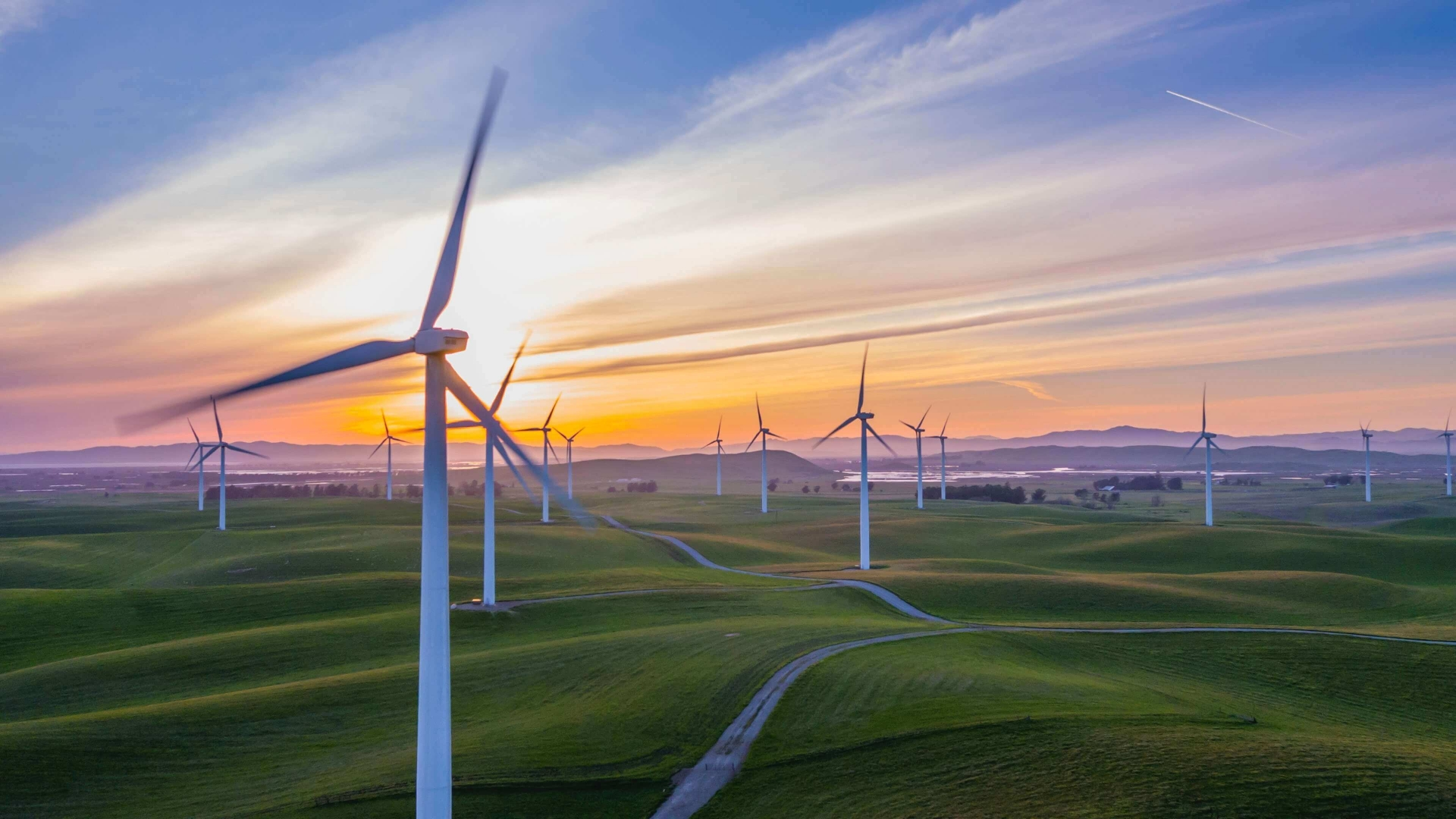 | Ninh Thuan inaugurated Southeast Asia’s largest renewable energy complex On April 16, The Trung Nam Group and authorities of the central province of Ninh Thuan inagurated a complex of solar and wind farms, which ... |
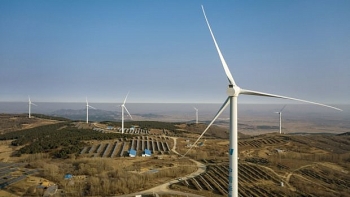 | Australia, Japan and Vietnam lead renewable energy shift in Asia Pacific Australia, Japan and Vietnam are leading the shift to renewable energy in Asia Pacific, according to the latest research from IHS Markit. Significantly, coal and ... |
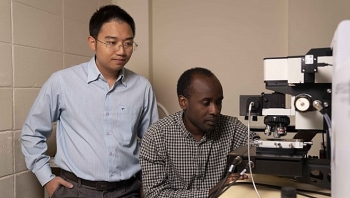 | Australia grants aid for Vietnamese-led research team A research team led by Vietnamese national Nguyen Trong Hieu from the Australian National University (ANU) has been granted aid worth AUD1 million (USD 750,000) ... |
Recommended
 Viet's Home
Viet's Home
Vietnam Through Paintings of Overseas Children in Japan
 Viet's Home
Viet's Home
Uncle Ho through Documents and Artistic Creations
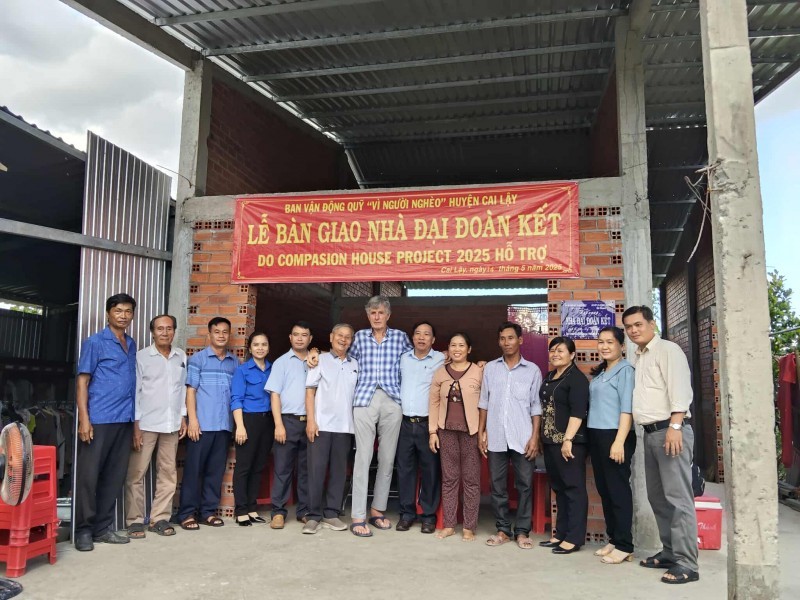 Viet's Home
Viet's Home
Compassion House - John Donovan Project Supports 10 Great Solidarity Houses in Tien Giang
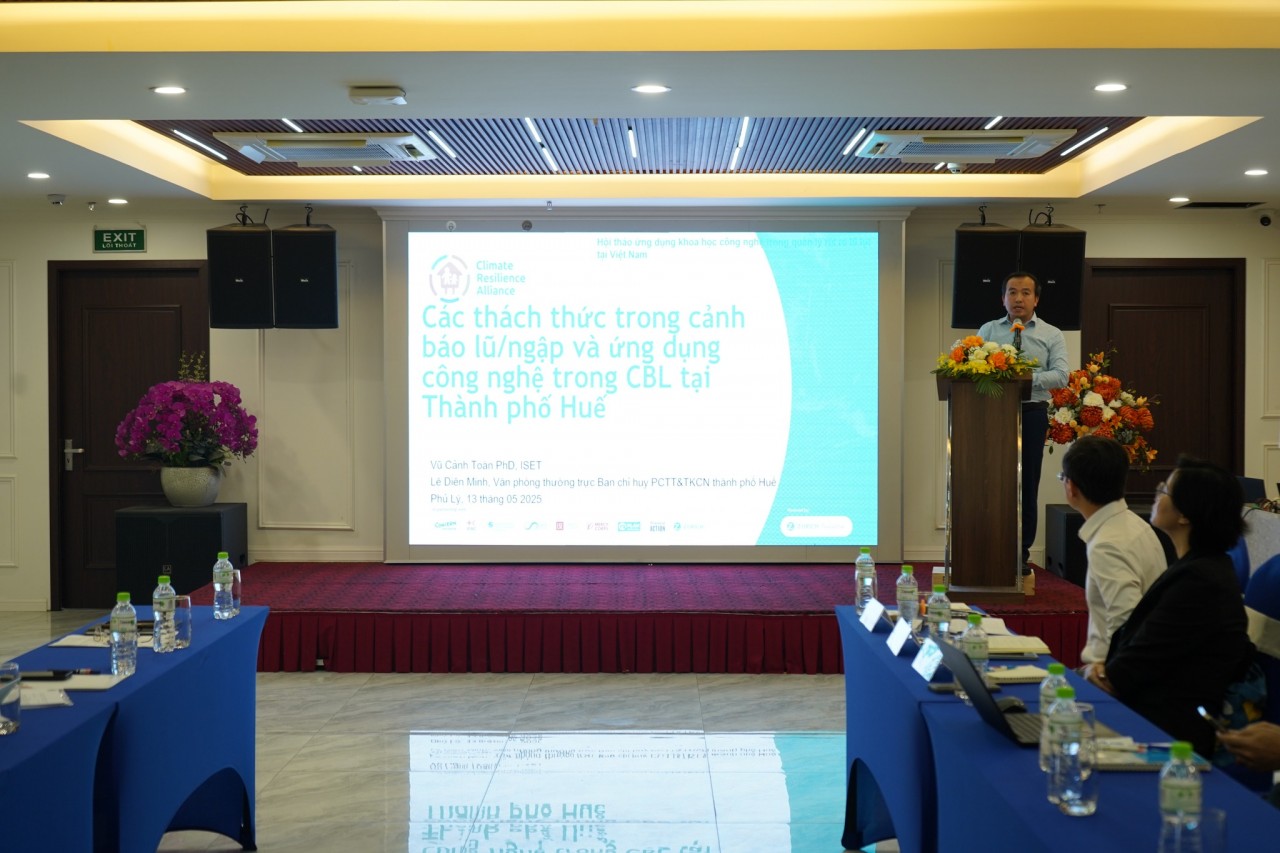 Viet's Home
Viet's Home
Harnessing Emerging Technologies for Flood Risk Warning in Vietnam
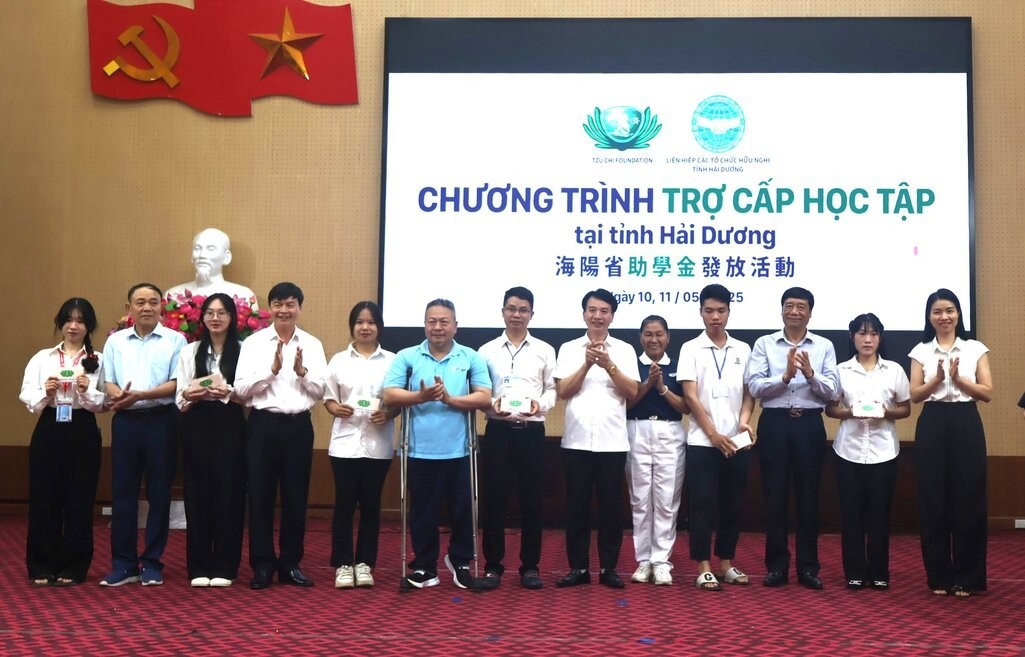 Viet's Home
Viet's Home
Tzu Chi Grants Over VND 2 Billion to Support Disadvantaged Students in Hai Duong
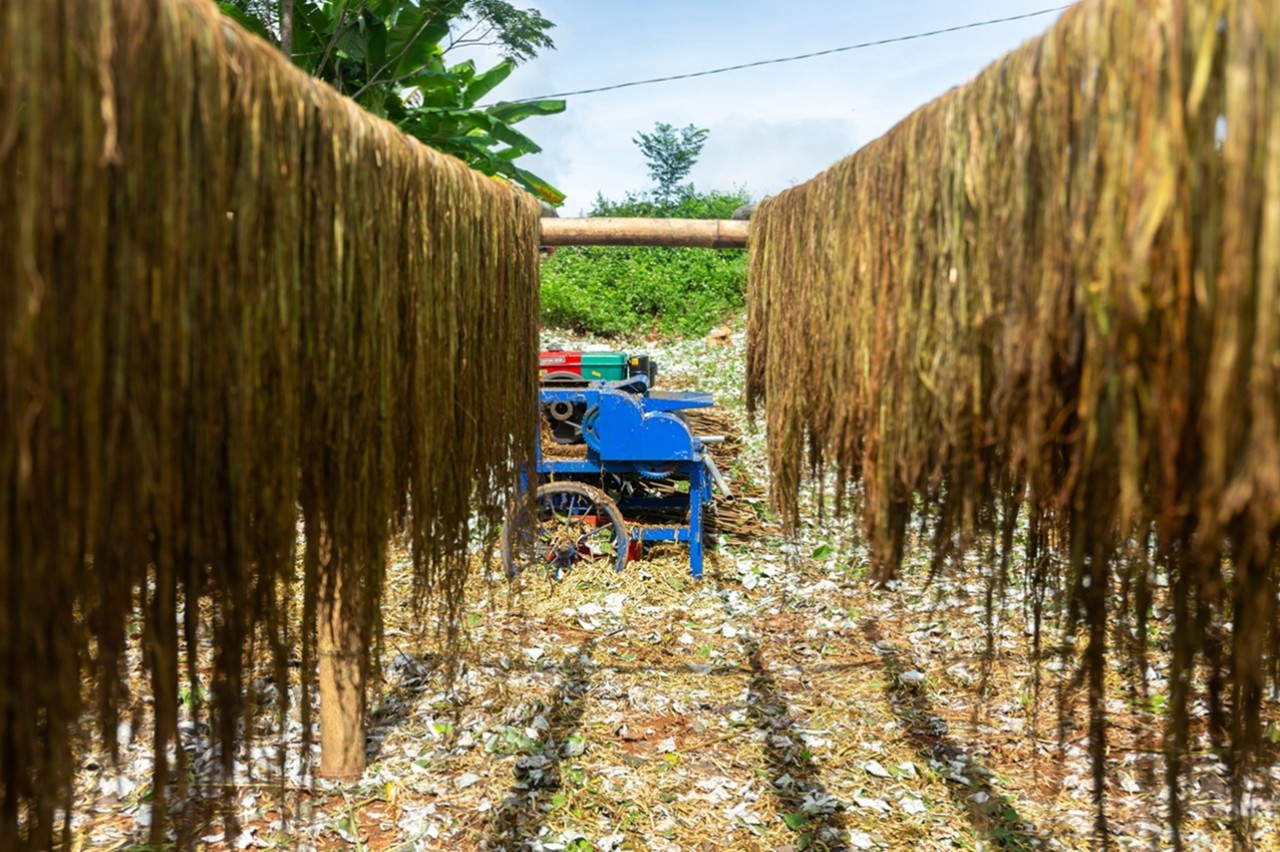 Viet's Home
Viet's Home
CARE Supports Hoa Binh Residents to Develop Sustainable Hemp Products
 Viet's Home
Viet's Home
"Ho Chi Minh Biography" in Greek Launched in Athens
 Viet's Home
Viet's Home

